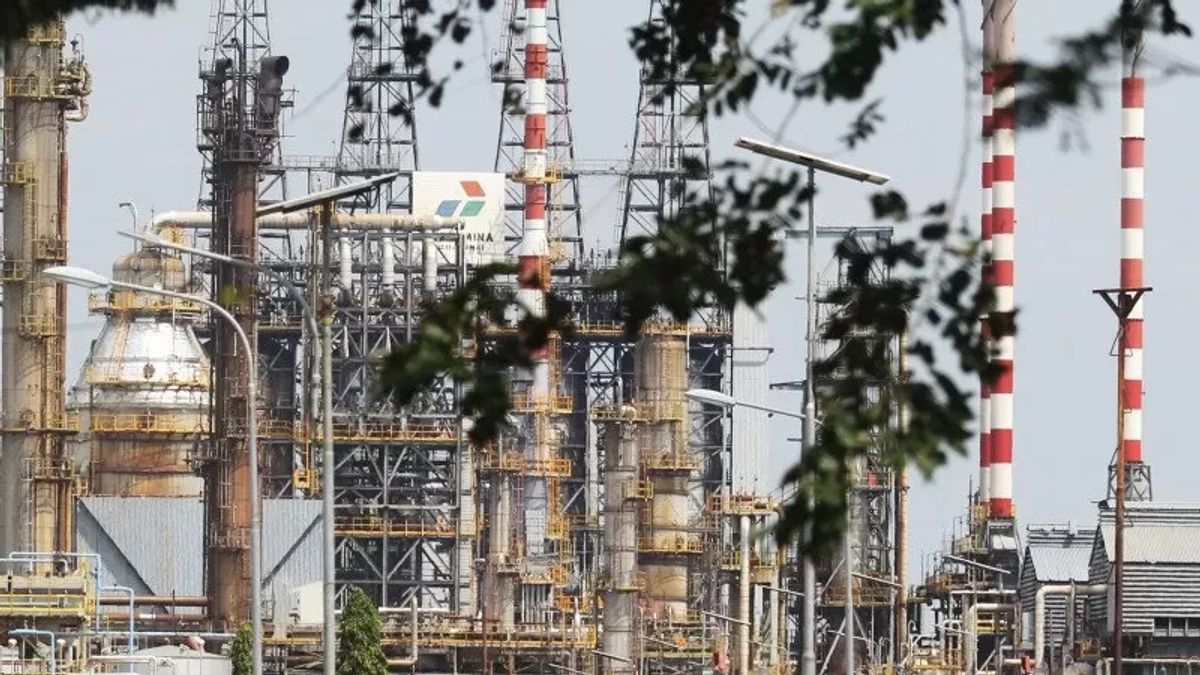JAKARTA - Secretary-General of the Ministry of Energy and Mineral Resources Dadan Kusdiana revealed two sides of the global conflict for the domestic energy sector.
Dadan said, apart from bringing negatives as oil and gas importers, at the same time it had a positive impact as mineral and coal exporters.
"Indonesia's position is rather unique, we are not only a producer of fossil energy, but on the other hand we are also importers. We import crude oil, we also import fuel, especially gasoline. If we import, the price must be international. But on the other hand, we also export gas. About 32 percent of our gas is exported, then we also become a producer of large minerals and coal," Dadan said in a statement to the media quoted on Thursday, August 8.
Global conflict, continued Dadan, affects both sides as exporters and importers. For example, the increase in crude prices due to conflict will have a negative impact on Indonesia. But on the other hand, Indonesia is also a crude exporter who enjoys rising prices due to conflict.
"If our oil price increases by 1 dollar per barrel, it increases state revenue by Rp3.3 trillion. But on the other hand, because we import both crude and fuel oil, state spending will increase to Rp9.2 trillion. So if it increases, it will actually have more impact on crude because there is a deficit of Rp5 to Rp6 trillion for an increase of 1 dollar per barrel," explained Dadan.
Dadan said, one of the largest consumers of fuel is a power plant, however, the impact is not too big because the power plant operating in Indonesia is 66 percent made from coal (PLTU) which is protected by a Domestic Market Obligation (DMO) policy with a benchmark of the highest price of 70 US dollars per ton.
"Alhamdulillah, electricity has not had much impact because we have very good policies. The basis is now 66 percent of coal. Meanwhile, coal has been labeled at a maximum price of 70 US dollars so it will never pass from there so it can be maintained in terms of international coal price volatility," said Dadan.
On the other hand, the coal exports carried out by Indonesia have brought great profits to Indonesia because export prices follow international market prices which bring an increase in state revenues.
SEE ALSO:
Therefore, Dadan assessed that the global conflict that occurred should be seen from two sides.
"I think this is something that is not seen whether this is good or bad. Indeed, there is a trade off there because we are not purely importers. We are also not 100 percent as producers, so this international price affects," explained Dadan.
Dadan gave an example of the impact of global conflict in 2023 which increased global commodity prices, making state revenues increase by 116 percent of the target or Rp300 trillion.
"In 2023, commodity prices are good. Coal prices are high, mineral prices are also, including nickel. PNBP's revenue can reach Rp300 trillion or 116 percent of the target that year. So it's just dynamic to see it between prices and PNBP, something that is very related," concluded Dadan.
The English, Chinese, Japanese, Arabic, and French versions are automatically generated by the AI. So there may still be inaccuracies in translating, please always see Indonesian as our main language. (system supported by DigitalSiber.id)












